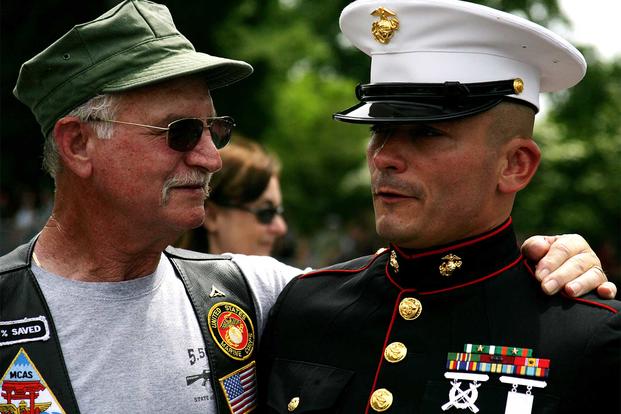Garrett Cathcart is Executive Director of Mission Roll Call
I was recently shocked to learn that almost half of all veterans in the United States are not affiliated with a veterans service organization or the U.S. Department of Veterans Affairs. Is that possible?
It turns out that it is.
The National Center for Veteran Analysis and Statistics reports there are approximately 20.8 million veterans in the United States. VA reports that there are nine million veterans receiving services, and the reported combined membership of the "Big 6" veterans service organizations is around 4.4 million. That means an estimated 7.4 million veterans are nowhere in the advocacy or policy process.
I have a couple of guesses as to why so many of my peers don't join a VSO with a say in policy. They are busy living their lives, raising a family, pursuing careers and leading in their communities. Some don't publicly identify as a veteran, unfortunately, because of negative connotations, and others don't feel welcome or that the legacy VSOs are a cultural fit.
How can we accurately have a conversation about veterans, and the issues that impact us and our communities, if half of us don't take the opportunity to make our voices heard?
Serving veterans has become my life's work. After nearly nine years as a cavalry officer (no, we don't have horses -- still get asked that) and three years fighting in Iraq and Afghanistan, I used my passion for service to work on behalf of veterans.
The deeper I went into the veteran service space, the more stories I heard from veterans from a wide range of backgrounds and a myriad of experiences. I learned so much about their successes, their needs and their journeys of transition. At the same time, many people I served with would reach out to me since I now was a 'veteran's guy' with questions such as: "How do I get a job?" "Should I go to the VA?" or "My buddy is in a bad spot, who can I call?"
I was dumbstruck that they didn't know where to go for resources. I also didn't think that a veteran should have to "know someone" to get what they needed.
We cannot effectively understand the veteran population, or any population, if we only hear from half of them. In order to solve this, we need to lower barriers, increase access, build trust and show effectiveness to the veteran community. We need to meet veterans where they are in the world, and honor what they are telling us.
I am passionate about developing a solution to achieve this mission. That's why I'm so excited about Mission Roll Call, a new nonprofit I'm now leading.
Mission Roll Call is a movement to make every veteran voice heard and enact positive, lasting change. We are building a community to proactively connect with veterans, caregivers and spouses without causing massive disruptions to their lives. Through our website, social media and online polls, we are providing veterans an ongoing opportunity to share their opinions, stories and concerns.
We are also building strategic relationships with national leaders, major veteran organizations and the VA, as well as civic leaders at the local and state levels. As veterans make their voices heard on our platforms, we will deliver their insights directly to these community leaders to share what we learn and lay the foundations for meaningful change.
The veterans community is not a monolith. On the contrary, we are arguably the most diverse group in the country. We will not overwhelmingly agree on everything, but there is strength in numbers when we do. We agree that we need to solve the veteran suicide crisis. We agree that we need to redefine the narrative of the American veteran as empowered individuals who are civic assets, not broken victims. We agree that when veterans lead in their communities, the communities are better -- and when we strengthen our communities, we strengthen our country.
To make positive change, we need veteran voices. Veterans need to think about what they want the future to look like and share their thoughts with us on our social media channels. Veterans can sign up at MissionRollCall.org and take our first poll and stand up and be counted. We need them to make your their voices heard.
Let's start a movement that is inclusive of all veterans from all walks of life. We each have a unique story and perspective, and the country has a responsibility to listen.
-- The opinions expressed in this op-ed are those of the author and do not necessarily reflect the views of Military.com. If you would like to submit your own commentary, please send your article to opinions@military.com for consideration.















